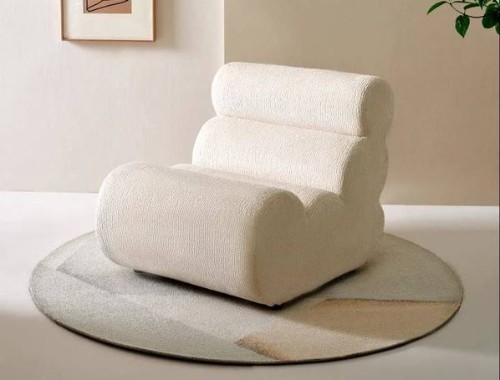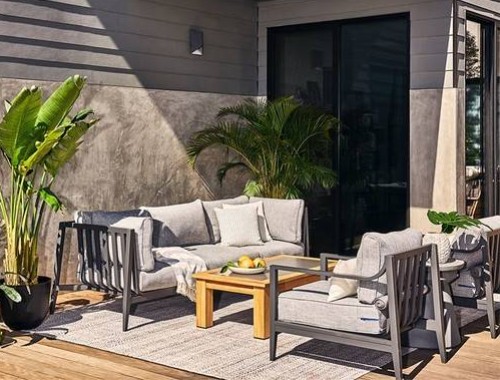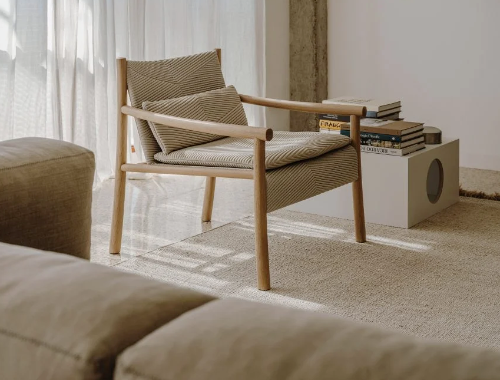KUALA LUMPUR, Malaysia — Amidst recent declines in sales to the United States and other markets, many Malaysian furniture manufacturers have been waiting for signs the economy is getting back on track.
They received some encouraging news at this month's Malaysian International Furniture Fair, which ended March 5. While traffic appeared somewhat lighter than normal on the first day or two of the five-day show, many said they drew strong interest from buyers and wrote some orders.
Final attendance figures weren't immediately available. However, interviews with exhibitors showed attendance was largely from European and Middle Eastern markets along with Australia and parts of Asia.
While attendance from the U.S. was lower than some would have liked, many said they did see some key accounts from the States.
The market featured a largely clean-lined transitional, lower-middle-priced array of case goods and youth furniture and similarly priced transitional and contemporary leather upholstery.
There were some 500 exhibitors from Malaysia and other countries including the U.S., China, Indonesia and Thailand. They showcased new and existing lines in about 800,000 square feet at the Putra World Trade Center and the Kuala Lumpur Convention Center.
A number of brands familiar to U.S. buyers such as Coe Ltd., Homelegance, Rubelli and Acme Furniture had booths at the show. But most exhibitors were Malaysian, including well known sources such as Poh Huat Inds., SJI Inds., ChuanHeng Furniture, Green River Wood and Chinfon Furniture Inds.
Acme, showing at MIFF for the third time, had a line of microfiber and bonded leather upholstered chairs, sofas and recliners produced in China. In addition to U.S. customers, the company was seeking more accounts from places like India, Japan, Australia and Europe, said William Yap, a director of sourcing and quality control.
Dining and occasional furniture producer Hume Furniture Inds. showed a number of new groups including the Asian-influenced Pebble Cove made with walnut veneers, and the rustic Prairie Sands made with pecan veneers. The groups included cocktails retailing at $229 and $199 respectively.
Helping market the product was Robert Hudgins, who joined Hume in November from Furniture Brands International to help develop product for the U.S. market. He is working on 10 new occasional groups, three of which will have companion home entertainment and casual dining.
Hudgins said the Middle East and Europe remain the company's largest export markets, but he is optimistic about growth in the U.S. market, partly through OEM accounts.
For many suppliers, the U.S. market remains a challenge largely due to the economy and ongoing pressure on pricing. Some said their goods were simply too high priced for the U.S. market and were focusing instead on places like Australia and the Middle East.
Still others are aggressively pursuing U.S. buyers.
"If necessary, we invited them to the factory to see (our production line)," said Alvin Koo, business development manager for dining room furniture manufacturer Ivorie International, whose West Malaysian factory produces 40-50 containers per month.
Ely Tio, export manager of case goods producer Chinfon Furniture Inds., said that sales to the U.S. were down about 25% last year. Even some U.S. customers that continue to order from the company have postponed some of their shipments, she said.
Still, she sees the business slowly recovering and hopes to see some more commitments and orders from the U.S., which still represents a healthy 30% of the company's business, just behind Australia's 35%.
"We wish to increase our sales to the U.S.," she said.
Coe Ltd. said it saw about 20 to 30 customers a day from around the world, with a number writing orders.
"It seems like the economy is recovering, so more customers are coming to the Malaysia show," said company representative Bob Wu. "Customers feel the economy is recovering so they are looking to place orders."
Malaysian case goods producer SJI Inds. was showing at MIFF for the eighth time. Its signature items included a new contemporary bedroom made with pecan veneers and rubberwood solids in a natural finish, and a clean-lined four poster bed made with rubberwood veneers in a mahogany finish.
Like other producers, it was hoping for a rebound in business after experiencing a slowdown over the past year due to issues such as housing woes in the U.S. market.
SJI was optimistic about this year due in part to early commitments and orders at the show. With 80% of its sales going to the U.S. - where its customers include Pottery Barn, West Elm and JCPenney - the company also is hoping to broaden its appeal to customers from other markets such as the Middle East and Australia, said operations manager Eric Quah.
"It is not easy and that is why we have to come up with a different concept than anyone else," he said of the company's new, largely contemporary styles. He added that the company also uses eco-friendly water based finishes to broaden its appeal to retailers seeking a green story on their floors.


























 沪公网安备31010402003309号
沪公网安备31010402003309号